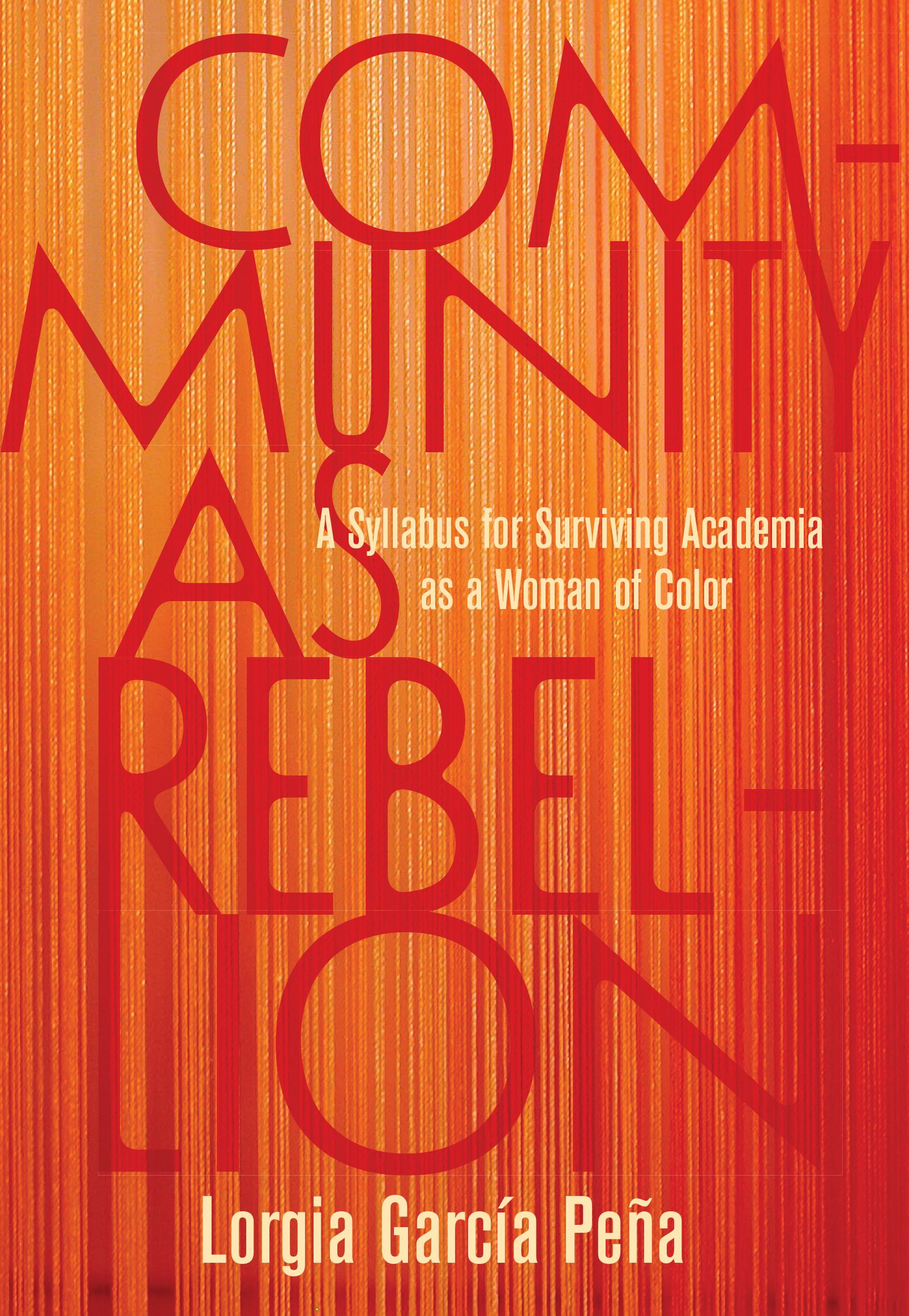Community As Rebellion
Community as rebellion
Latinx Colonialities in Global Perspective
A meditation on freedom making in the academy for women scholars of color.
Weaving personal narrative with political analysis, Community as Rebellion offers a meditation on creating liberatory spaces for students and faculty of color within academia.Much like other women scholars of color, Lorgia García Peña has struggled against the colonizing, racializing, classist, and unequal structures that perpetuate systemic violence within universities. Through personal experiences and analytical reflections, the author invites readers—in particular Black, Indigenous, Latinx, and Asian women—to engage in liberatory practices of boycott, abolition, and radical community-building to combat the academic world’s tokenizing and exploitative structures.
García Peña argues that the classroom is key to freedom-making in the university, urging teachers to consider activism and social justice as central to what she calls “teaching in freedom”: a progressive form of collective learning that prioritizes the subjugated knowledge, silenced histories, and epistemologies from the Global South and Indigenous, Black, and brown communities. By teaching in and for freedom, we not only acknowledge the harm that the university has inflicted on our persons and our ways of knowing since its inception, but also create alternative ways to be, create, live, and succeed through our work.
Reviews
"A life-saving and life-affirming text, Community as Rebellion offers us the trenchant analysis and fearless strategy radical scholar-activists have long needed. But Lorgia García Peña’s intervention is especially valuable at this moment, as we collectively consider how our most important social institutions might be reimagined beyond the strongholds of white supremacy, heteropatriarchy, and racial capitalism more broadly."
—Angela Y. Davis, author of Freedom is a Constant Struggle
“Community as Rebellion is a must read for anyone serious about confronting institutional racism, sexism, and elitism. Lorgia García Peña, one of her generation's most brilliant scholar-activists, challenges us to confront academia as a ‘colonial and colonizing’ space as the first step toward resistance and transformation. Her own experiences undergird her analysis and serve as a powerful call to action.”
—Barbara Ransby, author of Eslanda
“Lorgia García Peña is one of the few courageous and brilliant intellectuals grounded in rigorous and visionary grassroots education. This pedagogical guide for genuine freedom struggles is so badly needed in our neo-fascist times!”
—Cornel West, Union Theological Seminary
“Unflinching, brilliant, and absolutely necessary. In these pages, Lorgia García Peña shares her experiences—and others’—to reflect on what it means to be ‘the stranger’ in academia: that sole symbol for diversity that still remains an outsider. Unwavering in its clarity and compassion, this powerful book reminds us that true belonging comes from actively building communities unafraid to center care and rebellion. Everyone should read this.”
—Maaza Mengiste, author of The Shadow King
"‘What does it mean to teach for freedom?’ Dr. García Peña asks and boldly beckons us toward its practice across the policed borders of discipline, nation, theoretical traditions, and entrenched racial categories. A capacious thinker, rigorous researcher, brilliant activist, and path-breaking scholar, Dr. García Peña calls on us not simply, as she writes, to ‘mind the historical gaps’ for long-subjugated stories but alerts us to the ways these gaps have been historically mined in extractive ways in the service of colonial projects and neoliberal calls for diversity. Her astonishing work gathers us under its broad canopy to plot and persevere toward communal rebellion and renewal.”
—Deborah Paredez, Columbia University
“With characteristic clarity, courage, and conviction, Lorgia García Peña draws on her remarkable history as an engaged scholar and committed activist to demonstrate the necessity of living in community and accompanying others as keys to both personal liberation and social transformation.”
—George Lipsitz, author, The Possessive Investment in Whiteness
“Community as Rebellion is partly an incisive and deeply personal expose of the neoliberal university and its racializing and patriarchal practices of denigrating women of color scholars while extracting their intellectual, administrative, and emotional labor. But it is, above all, a mandate to transform higher education that begins with recognizing our mutual obligations to each other and to the world we study, extending 'community' beyond the ivory tower, and co-creating with our students new, autonomous intellectual spaces. Lorgia García Peña wrote this book not from a dream or an abstract theory but from building rebel communities for over a decade. She knows that there can be no free education without freedom.”
—Robin D. G. Kelley, author of Freedom Dreams: The Black Radical Imagination
awards
2023 LASA Latinx Studies Outstanding Book Award
